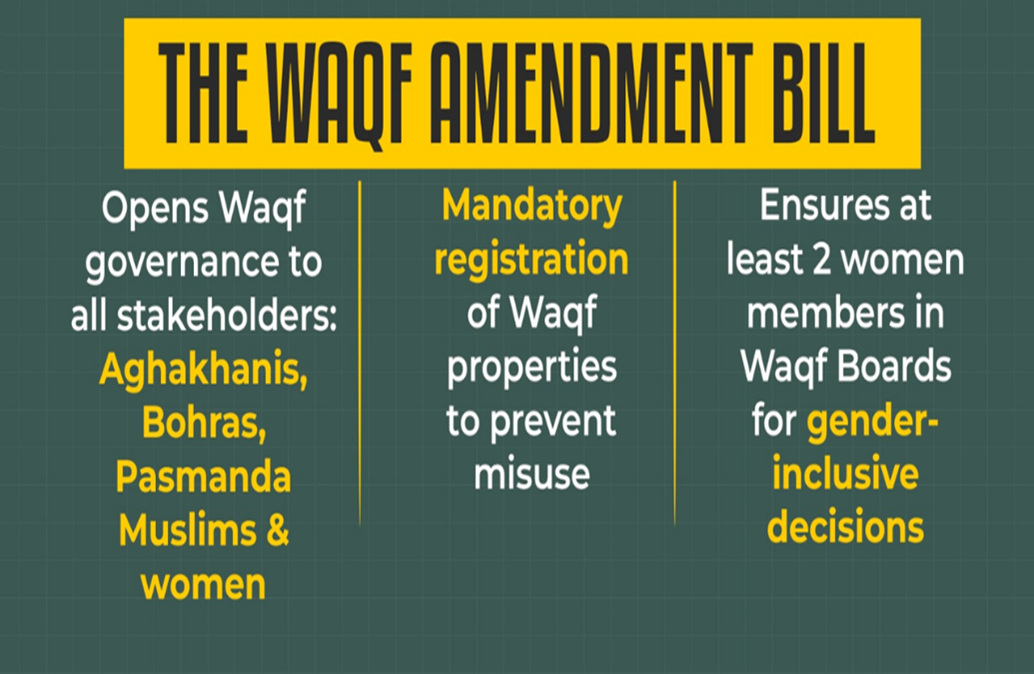PREVIOUS
Waqf Amendment Bill 2025
April 6 , 2025
13 hrs 0 min
93
0
- Parliament cleared the Waqf (Amendment) Bill 2025, after nearly 14-hour debate in Rajya Sabha by 128 members voting in favour and 95 against.
- The Lok Sabha passes Waqf Bill after 12-hour debate with 288 members vote in favour, 232 against.
- It got the assent of President Droupadi Murmu on April 05th.
- Last year, the Bill was referred to a Joint Parliamentary Committee (JPC) chaired by Jagdambika Pal for the scrutiny.
- The new Bill, which seeks to amend the Waqf Act, 1995, governs administration of waqf properties in India.
- It streamlines Waqf property management while safeguarding heritage sites and individual property rights.
- All information regarding waqf properties must be uploaded to a designated portal within six months of the law’s enactment.
- Additionally, any new waqf property registrations must be submitted exclusively through this portal to the respective Waqf Boards.
- Section 40 of the Waqf Act empowers the Waqf Board to decide if a property is Waqf property.
- The decision of the Board would be final unless it is revoked or modified by the Waqf Tribunal.
- The Bill extends this power, which currently lies with the Waqf Tribunal, to the District Collector.
- Any government property identified or declared as Waqf property, before or after the commencement of the Act, shall not be deemed to be a Waqf property.
- The 1995 Act prescribes a survey of auqaf (plural of waqf) by a Survey Commissioner appointed by the state government.
- The amendment Bill replaces the Survey Commissioner with the District Collector or any other officer not below the rank of a Deputy Collector duly nominated by the Collector.
- The Bill proposes allowing a non-Muslim Chief Executive Officer, and at least two non-Muslim members to be appointed by the state government to the Waqf Boards at the state level.
- The Bill proposes to delete the Section 107 of the 1995 law that had made the Limitation Act, 1963 inapplicable to Waqf properties.

Leave a Reply
Your Comment is awaiting moderation.


